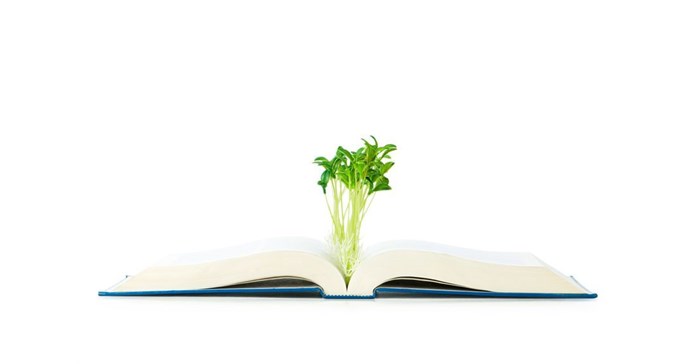






Dr André Schreuder, managing director of Villa, explained how the company joined hands with Monash South Africa, after identifying the need for more integrated higher education in which students of agriculture, whether they are recently matriculated or already working on farms, can earn a diploma while gaining practical on-farm experience or continue their on-farm or agricultural work. The Monash Villa Academy model presents an exciting mix of academic and technical training, backed by industry involvement and continuous student feedback in the form of course and lecturer evaluations.
The model differs from traditional higher learning models, in that industry involvement plays a key role. Industry bodies have been identified as key input providers, which will allow Monash SA and Villa Academy to develop needs-based courses. In short, waiting for the government wheels to turn, just isn’t an option anymore.
“Private higher education has been shown to be more innovative and able to address higher education needs, than public institutions,” said Prof Alwyn Louw, CEO of Monash South Africa. He described the growth model that Monash SA is committed to, emphasising the fact that it is designed with a view to diversification, a wider appeal, greater reach and expansion to new geographical locations. Distance learning is a key component of this growth model, as is flexibility, appropriate training and industry readiness.
The dean of Villa Academy, Prof Charlie Reinhardt, emphasised the dire need for agricultural training in South Africa and drew comparisons with other African countries, some of which seem to be better off than South Africa when it comes to their educational systems. One aspect that all African countries have in common though, he said, was that resource-poor farmers in Africa are prevented from excelling and becoming progressive due to economic, social, educational, natural, infrastructural and political constraints. Funding and the cost of education is a major factor, as is the skills gap.
“Africa’s skills gap at secondary school level is large,” he said, “and graduates usually don’t possess the skills employers demand from a productive workforce.” At the same time, industry entrants fresh from university often require inordinately long adjustment periods and upskilling in order to cope with the challenges of the workplace.
It also seems as though South African agricultural colleges are no longer delivering the well-rounded, technically skilled professionals at production manager level, higher certificate level and diploma level. This is exacerbated by the fact that government intervention and support for education and training on the continent is generally low and fraught with bureaucratic impediments. “It is a pity,” he added, “that agriculture is often not a study direction nor a career of first choice, due to limited awareness and understanding of job opportunities in the sector.”
Instructional reform – this is the term that embodies the aim of a new partnership between agricultural company, @VillaCrop, and academic institution, @Monash_SA
— Farmbiz magazine (@farmbizmag) November 23, 2017
Read more: https://t.co/BOD2O7wEUv pic.twitter.com/GAbIiYKaqY
Another problem experienced in the South African schooling system and agricultural colleges, explained Prof HB Klopper of Monash South Africa, is that mathematics remains a blockage. Klopper is the director of executive education and short learning programmes at Monash SA. “Agricultural subjects at school may ironically be a disadvantage for students wanting to enter higher education,” he said. “There are very few agricultural secondary schools in the country and agricultural science is a very popular choice at this level.
“The tertiary sector consists of twelve agricultural colleges offering specialised training, but these colleges are administered provincially and not at national level. Ten of the country’s 26 universities offer agricultural degree programmes up to doctoral level. Different organisations and government departments are responsible for agricultural education and, at the post-graduate level, there is no mechanism to formally coordinate the work of the entities involved.” Sadly, he concludes, very few appropriately trained people are currently produced through Adult Education and Training (AET).
There is a string of problems identified by a consensus study into the agricultural higher education system in South Africa. These include inadequate funding for practical-level training, lack of articulation between the various components of the AET system, poor quality educators, an inadequate number of educators, poor transition from school to post-school education, and more. The Monash South Africa and Villa Academy partnership aims to change this landscape through ‘instructional reform’ and literally changing the way in which agricultural higher learning is presented.
Klopper emphasised key points and values that are unlocked by this new partnership. These include, among others:
• A blended approach to online and offline training
• Strengthening e-learning through continuous online activities and engagement
• Ensuring stronger industry involvement and engagement
• On-farm training and practical application of academic learning
• Flexibility in terms of completion periods for those already working in agriculture
• Introducing an instruction framework to better facilitate the application and transfer of knowledge
• Setting a minimum standard for people active in the agricultural industry
• Introducing regular certification opportunities
• Bridging the funding gap
“Agriculture is not about shovelling with a spade. It is not about toiling in the sun all day,” said Klopper. “The opportunities are endless and we need to establish proper career guidance coupled with higher education programmes that are sensible, and will draw prospective agriculturalists to the industry. This new partnership aims to do just that.”

AgriOrbit is a product of Centurion-based agricultural magazine publisher Plaas Media. Plaas Media is an independent agricultural media house. It is the only South African agricultural media house to offer a true 360-degree media offering to role-players in agriculture. Its entire portfolio is based on sound content of a scientific and semi-scientific nature.
Go to: http://agriorbit.com/